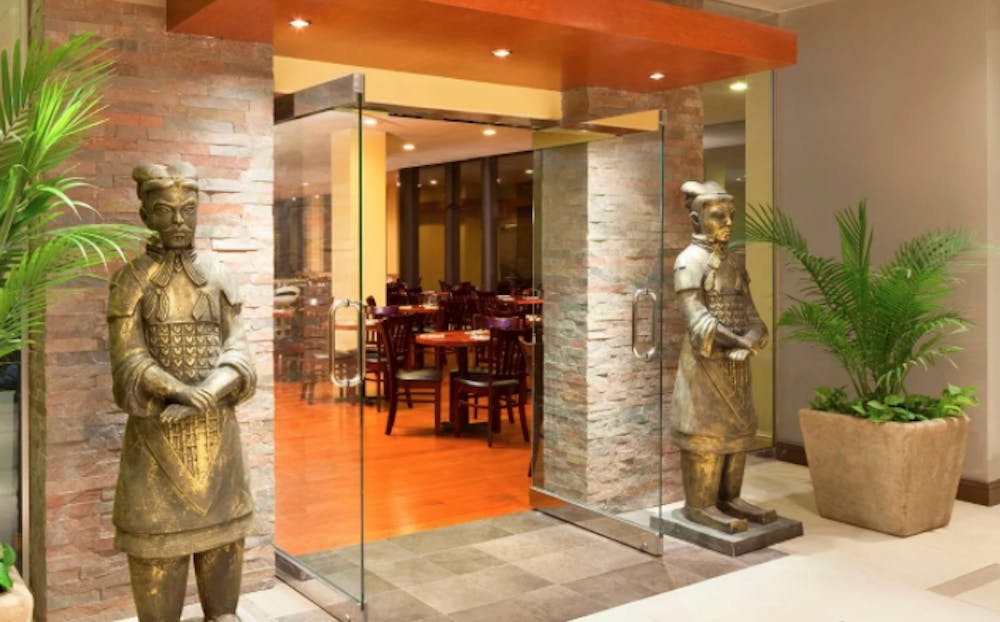On the heels of a year overshadowed by COVID—19, Chinese New Year is an exciting fresh start. There's firecrackers and dragon dances, scrumptious rice cakes (my personal favorite Chinese New Year delicacy), and an electrifying excitement that fills the air during this period of rebirth.
In addition to symbolizing hope, new beginnings, and good fortune, Chinese New Year is a time dedicated to family and loved ones. With the transition from the Year of the Rat to the Year of the Ox, this holiday is a much needed reminder of the importance of family after a chaotic year marked by isolation.
Although this Chinese New Year, celebrated on Feb. 12, was different from others due to travel restrictions, diminished restaurant capacities, and a million other pandemic constraints, the restaurant Sang Kee Noodle House adapted to preserve the spirit of this celebration.
After immigrating to Philadelphia from China over 30 years ago, Sang Kee’s manager Hugh Kong opened the restaurant in 2009. Located close to Penn's campus on Chestnut Street, Sang Kee has allowed Kong to form intimate bonds with the Penn students who frequent his restaurant.
Kong jokes, “A lot of students cannot live without Sang Kee”—and he’s not wrong. Sang Kee is a hub for convenient, delicious food, and it's a beloved hotspot for many Penn events. Though Kong usually just interacts with the customers, he still indulges in his love for cooking by occasionally stepping into the kitchen and sharing new recipe ideas with his cooks.
Many adore Sang Kee for its reliability as a guaranteed delicious break from dining hall food, but the restaurant has also worked hard to evolve its offerings over the years. The restaurant has expanded its dishes beyond Cantonese food with the addition of Szechuan cuisine, which has brought a spicier kick to the menu. Along with the classic roast duck, Kong recommends the hot peppers stuffed with shrimp paste—a Szechuan dish that he specially modified for the restaurant.
The COVID-19 pandemic has significantly impacted Sang Kee’s business and altered its daily operations. Like many other small, local businesses, circumstances forced Kong to let go of many employees. “I cannot hire all my employees back here yet," he says. "I used to have about 25 to 30 employees working everyday. Right now, I only have about six people.”
Since Sang Kee is restricted to limited in–person dining and take–out orders, Kong reports that the restaurant is only reaching about 20% of its pre–pandemic business activity.
The most difficult part of operating during the pandemic has been the loss of many Penn and Drexel students who haven't been able to return to Sang Kee, or even to Philadelphia.
“I just wish that everyone is healthy and happy. I would like to see the students come back to the community soon," he says.
While Chinese New Year celebrations usually entail big family gatherings, this year required a distant, contactless take on tradition.
“Usually on Chinese New Year day, I give lucky money to the employees. Then later on when we are locked up after Chinese New Year, we have a celebration," he says. "We pick one of the Chinatown restaurants and all go there to eat.” But Kong wasn't able to continue these traditions this year.
Kong has not seen his mother for several months and is limited to daily phone calls with her. This year, his big family reunion was reduced to a short conversation behind a door as his mother passed him freshly prepared food for Kong and his wife to eat by themselves.
However, the pandemic doesn’t mean that Chinese New Year went uncelebrated. Sang Kee found a way to ensure that students could still honor this special time. For the rest of February, the restaurant is offering an affordable Chinese New Year banquet menu for groups of four, six, or eight people with both Szechuan and Cantonese banquet menus.
Sang Kee maintains tradition by offering classic Chinese New Year dishes: turnip cakes, sticky rice ball sweet soup, peking duck, and—of course—fish to stuff into your pockets for a surplus of wealth and prosperity in the new year.
Kong says that Sang Kee cooks for the students so that “they don’t have to cook themselves, and they can focus on their school.” He also emphasizes that Sang Kee is more than just a sit–down or takeout restaurant. “All the students come to me if they have any functions or events,” he says. “[If] they are looking for sponsors or donations, we [will] always do it.”
For over a decade, Sang Kee and Hugh Kong have taken care of Penn students. Now it’s our time to take care of them—so order some takeout, pay a safe visit to Kong and the other employees in person, and have a safe, revitalizing Lunar New Year.







